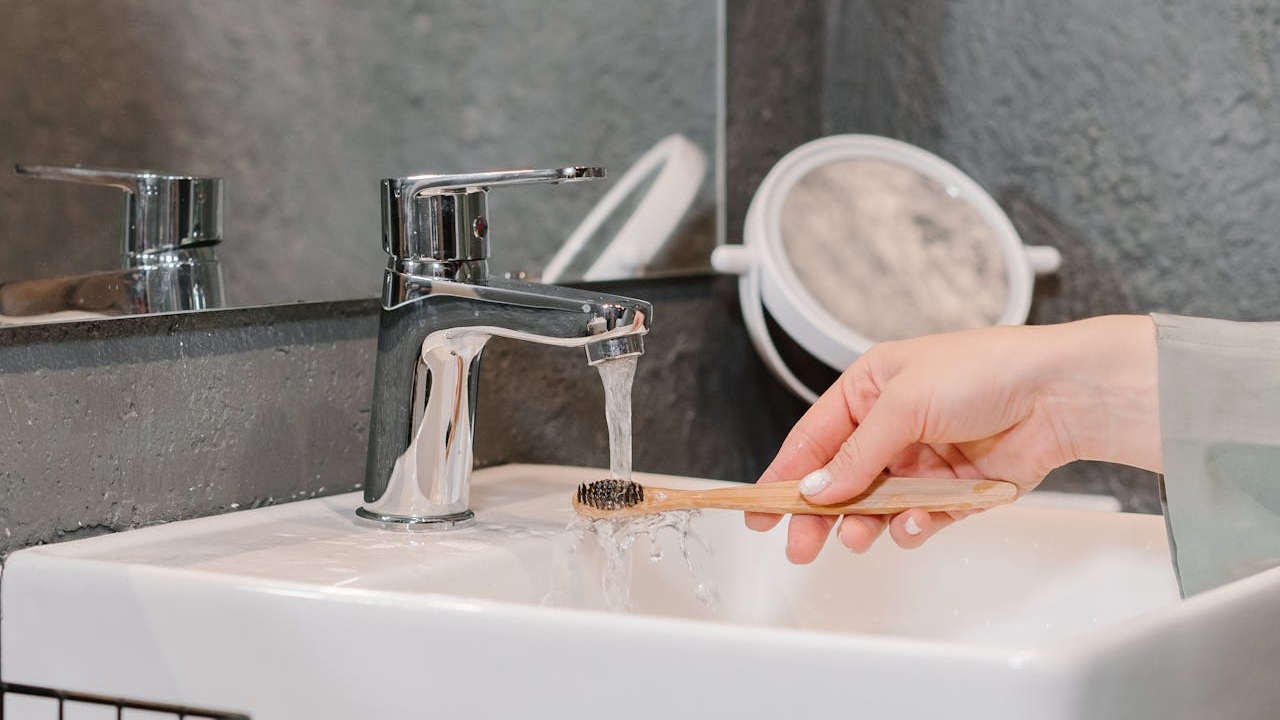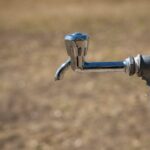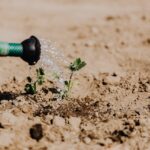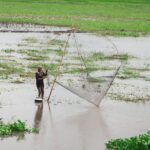Common Water-Wasting Habits at Home: Are You Guilty?

Water is precious, isn’t it? It’s easy to forget how important it is when we can just turn on a tap and get as much as we want. But the truth is, fresh water is a limited resource, and many parts of the world are facing shortages.
Most of us use far more water at home than we realise. From brushing our teeth to washing dishes, from laundry to gardening, water plays a big part in our daily lives. The average household uses hundreds of litres of water every day. That’s a lot of water.
But here’s the good news: many of us are using more water than we need to. By identifying and changing some common habits, we can save a lot of water without much effort. Let’s take a look at some of these habits and see if any of them sound familiar.
Bathroom Blunders
The bathroom is often the biggest water user in our homes. Here are some common ways we might be wasting water without realising it:
- Leaving the tap running while brushing teeth: This is a big one. If you leave the water running while you brush your teeth, you could be wasting several litres of water each time. That adds up to a lot over a year. Try turning off the tap after wetting your toothbrush, and only turn it on again when you need to rinse.
- Taking excessively long showers: We all enjoy a nice, long shower sometimes. But did you know that a 10-minute shower can use up to 160 litres of water? Cutting your shower time by just a couple of minutes can save a lot of water. If you like to sing in the shower, try limiting yourself to one song instead of a whole concert!
- Using the toilet as a wastebasket: Every time you flush a tissue or other small trash down the toilet, you’re using several litres of water unnecessarily. Keep a small bin in the bathroom for trash, and save the flushing for when it’s really needed.
- Ignoring leaky faucets or running toilets: A dripping faucet might not seem like a big deal, but it can waste thousands of litres of water over a year. And a toilet that keeps running after you flush can waste even more. If you notice these issues, it’s worth fixing them promptly.
Kitchen Culprits
The kitchen is another place where we use a lot of water. Here are some habits that might be wasting water:
- Running water while you do the dishes: How about you collect water, wash and then rinse. Washing and rinsing at the same time wastes a lot of water.
- Thawing food under running water: It might be quick to thaw frozen food under running water, but it’s also wasteful. Instead, try moving frozen items to the fridge the night before you need them. If you’re in a hurry, use a bowl of water instead of running water.
- Overusing garbage disposals: Garbage disposals use a lot of water to function. Try to limit their use by composting food scraps when possible, or scraping plates into the trash before rinsing.
- Rinsing dishes before putting them in the dishwasher: Most modern dishwashers can handle dirty dishes without pre-rinsing. Scrape off large food particles, but skip the rinse. You’ll save water and your dishes will still come out clean.
Laundry Lapses
Doing laundry is a big part of our water use at home. Here are some ways we might be using more water than necessary:
- Washing small loads of laundry: Just like with the dishwasher, running the washing machine with only a few items wastes water. Try to wait until you have a full load before running the machine. If you must wash a smaller load, make sure to use the appropriate water level setting.
- Over-washing certain types of clothing: Not all clothes need to be washed after every wear. Items like jeans, sweaters, and jackets can often be worn a few times before needing a wash. This not only saves water but can also help your clothes last longer.
Outdoor Offences
Our water use doesn’t stop at the front door. Many of us unknowingly waste a lot of water in our yards and driveways. Let’s look at some common outdoor water-wasting habits:
- Overwatering lawns and gardens: Many people water their grass and plants more than necessary. Most lawns need only about 1 – 1.5 inches of water per week, including rainfall. Overwatering not only wastes water but can also harm your plants by promoting shallow root growth.
- Watering during the heat of the day: When you water your garden in the middle of a hot day, much of that water evaporates before it can reach the plant roots. It’s better to water early in the morning or late in the evening when it’s cooler.
- Using a hose instead of a broom for cleaning driveways: It might seem easier to spray down your driveway with a hose, but this uses a lot of water unnecessarily. A broom can do the job just as well for most cleaning tasks.
Hidden Household Habits
Some water-wasting habits are less obvious but can still add up over time:
- Letting the water run to get hot or cold: We often let the tap run while waiting for the water to reach the right temperature. Instead, try collecting this water in a bucket or jug. You can use it later for watering plants or cleaning.
- Using water to defrost freezers: Some people use hot water to speed up the defrosting process. This not only wastes water but can also damage your freezer. Instead, turn off the freezer and let it defrost naturally.
- Buying water-intensive products without realising it: Many everyday items require a lot of water to produce. Being mindful of what we buy and choosing sustainably produced items when possible can help reduce our overall water footprint.
The Impact of These Habits
Our water-wasting habits have consequences beyond just higher water bills:
- On personal water bills: Wasting water at home directly impacts your wallet. By adopting water-saving habits, many households can reduce their water bills by 25% or more.
- On light bills: Say you have a borehole and you don’t need to pay for water bills run by the government. Wasting water means your tank will get empty faster and you will need to pump water more regularly and of course, pumping water requires electricity.
- On community water supplies: In many areas, water treatment and distribution systems are under strain. When we waste water, it puts additional pressure on these systems, potentially leading to water restrictions or the need for costly infrastructure upgrades.
- On the environment: Excessive water use can harm local ecosystems. Rivers, lakes, and underground water sources can be depleted, affecting wildlife and reducing water available for future use. Moreover, treating and distributing water requires energy, so wasting water also contributes to unnecessary greenhouse gas emissions.
Simple Solutions for Water Conservation
The good news is that small changes can make a big difference. Here are some easy ways to save water at home:
- Easy fixes for each common habit:
- Install a dual-flush toilet or put a water-filled bottle in your toilet tank to reduce flush volume.
- Use a bucket to collect water while waiting for the shower to warm up. This can be used for watering plants.
- Fix leaky taps promptly.
- Water-saving devices and technologies:
- Low-flow showerheads can reduce water use by up to 60% without reducing shower quality.
- Faucet aerators mix air with water, reducing flow while maintaining pressure.
- Smart irrigation systems can adjust watering based on weather conditions and soil moisture.
- Developing water-conscious routines:
- Make a game of taking shorter showers. Use a timer or finish before your favourite short song ends.
- Get in the habit of only running full loads in your dishwasher and washing machine.
- Learn about the water needs of your garden plants. Many plants thrive with less water than you might think.
Bear it in mind that saving water doesn’t mean living an uncomfortable or inconvenient life. Most of these changes are small and easy to implement. Once they become habits, you’ll be saving water without even thinking about it.
The Bigger Picture
When we save water at home, we’re doing more than just reducing our bills. We’re part of a global effort to use water more wisely. Here’s how our individual actions fit into the bigger picture:
- How individual actions contribute to global water conservation:
Every drop we save adds up. If everyone in a city of 1 million people saved just 4 litres of water a day, that’s 4 million litres saved daily. This means less strain on water sources, treatment plants, and distribution systems. It also means more water available for other uses, like agriculture or maintaining healthy ecosystems.
- The role of water conservation in combating climate change:
Saving water also saves energy. It takes a lot of power to treat water, pump it to our homes, and heat it for our use. By using less water, we’re indirectly reducing energy use and greenhouse gas emissions. Also, as climate change makes rainfall less predictable in many areas, using water wisely helps us adapt to these changes.
Conclusion
We’ve looked at many ways we might be wasting water at home without realising it. From leaving the tap running while brushing our teeth to overwatering our lawns, these habits can add up to a lot of wasted water. But remember, every habit can be changed, and every change makes a difference.
At AquaMaya, we see firsthand how important water conservation is. Our work in West Africa has shown us that water is truly precious. In many communities where we work, people don’t have the luxury of wasting water – every drop is valued. But we’ve also seen how small changes can make a big impact.
We believe that everyone, regardless of where they live, can contribute to water conservation. Whether you’re in a water-scarce region or a place where water seems abundant, your actions matter. By adopting water-saving habits, you’re not just helping yourself, you’re part of a global community working towards a more water-secure future.
Here at AquaMaya, we’re committed to not just providing water, but also promoting responsible water use. We invite you to join us in this mission. Start by looking at your own water habits. Which of the common water-wasting habits we discussed do you recognize in your own life? Pick one or two to change this week.
Remember, becoming water-wise is a journey. You don’t have to change everything overnight. Small, consistent changes can lead to big savings over time. And as you make these changes, you’re joining millions of people around the world, including the communities we work with in West Africa, in valuing and conserving our most precious resource.
Together, we can ensure that clean, safe water is available for all, now and in the future. Every drop counts, and every action matters. Will you join us in becoming a water conservation champion at home?
Sources:
- https://www.businessinsider.com/wasting-water-money-2018-11?r=US&IR=T
- https://www.ariston.com/en-me/the-comfort-way/news/how-much-water-is-consumed-for-a-shower
- https://hubbub.org.uk/5-clever-laundry-tips-to-care-for-your-clothes-and-use-less-water
- https://theturfgrassgroup.com/turf-care/deep-watering-grass-the-science-of-watering-mature-turf/
- https://www.neefusa.org/story/water/how-household-water-usage-affects-water-quality
- https://www.weforum.org/agenda/2014/12/the-damage-caused-by-water-overuse/
- https://www.continentalplumbing.net/blog/2023/july/water-saving-techniques-how-to-make-your-toilet-/
- https://www.jaquar.com/en/blog/7-ways-to-make-your-shower-more-water-efficient
- https://www.sciencedirect.com/science/article/pii/S2772427122000791






